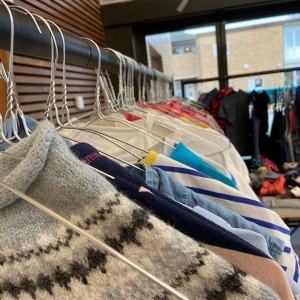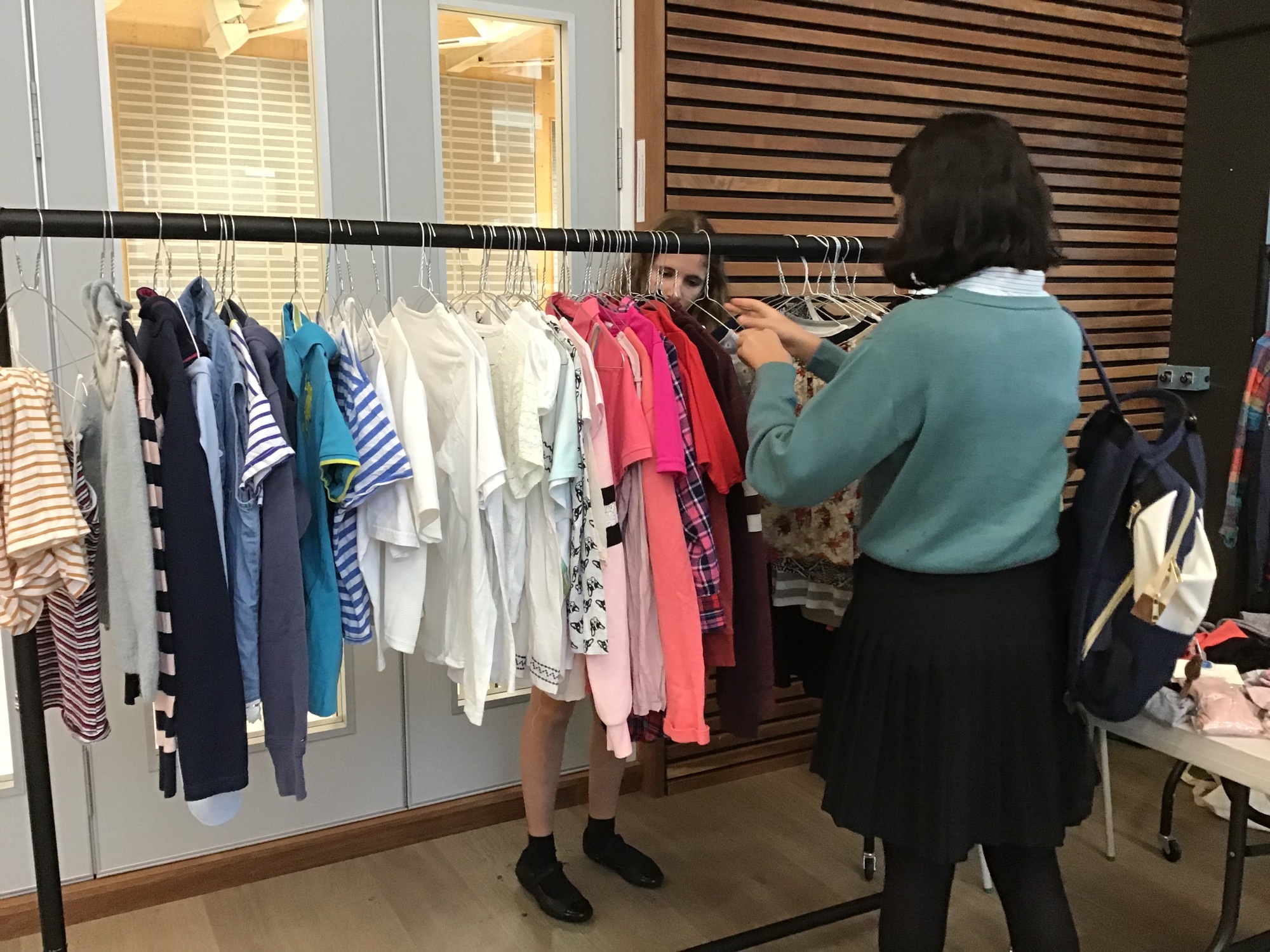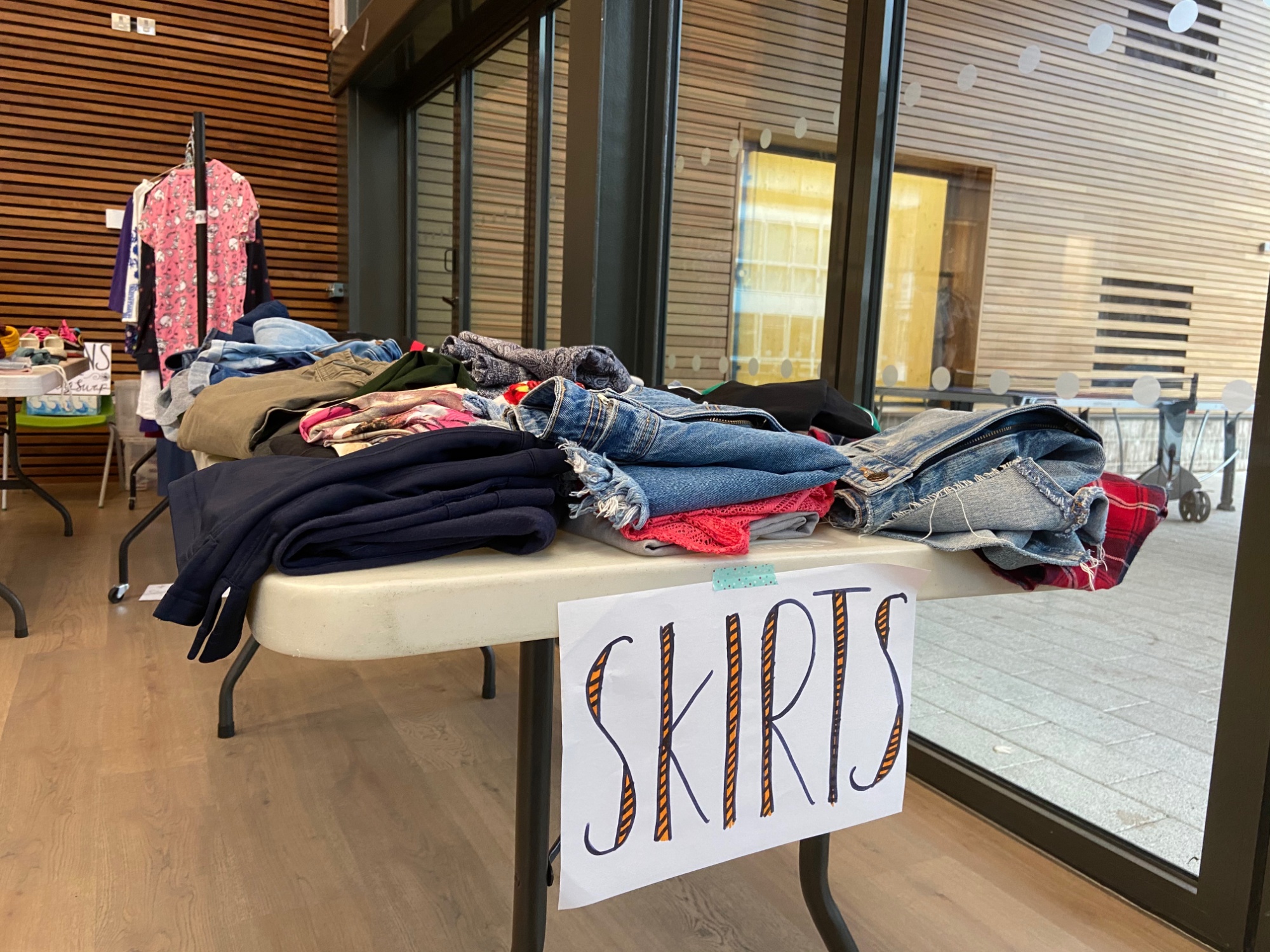Published on 15/11/19

As the Eco Committee, we held a clothing swap event in school for a week, from 11 November to the 15 November.
Students were encouraged to bring in clothes, shoes, jewellery or bags that they don’t like or no longer wear - provided they’re in good to pristine condition - and put them in a collection box. As the eco-committee, we arranged and categorised the clothing based on size and type and set up the clothing swap in the activity space.
It was a great opportunity for students to get some cool and free new pieces in their wardrobes and re-gift some of their unwanted clothes!
Students who brought in clothes received a token for each item they brought in, which could then be used to “pay” for another item donated by someone else that they wanted to take home. All leftover clothes/shoes at the end of the week were donated to a charity shop in town.
Why did we arrange the clothing swap?
Fast fashion is hugely damaging to the environment in a variety of ways, and the breaking of many human rights is often involved in its production in developing countries. Fast fashion items are sold throughout the high-street where the majority of people shop.
The clothes are created in low income countries where the workers are paid illegally low wages and often forced to work in terrible conditions. The clothing is either made from hugely fossil fuel-based polyester, or cotton, which uses vast amounts of water (the average water footprint for a kilo of cotton is between 10 and 20,000 litres) and toxic chemicals, as well as fertilisers and pesticides, cause huge environmental damage, as well as birth defects, tumours and death, for the workers who grow the product. Meanwhile, organic cotton still only accounts for less than 1% of the worlds annual cotton crop. Textile dyeing is the second largest polluter of clean water globally, and this usage and contamination of clean water in the already hot and dry countries where it is produced causes water scarcity, an issue that will only get worse with climate change. Brands are making billions, while the environment and vulnerable people are suffering horribly.
Once made, the product is shipped to consumer countries, like the UK. A single item of clothing can be packaged in plastic three times throughout this process, also with a single use plastic hanger. More fossil fuels are used to transport these products in planes or shipping containers.
Once in the consumer country, the garments are bought, often with little thought to their lifespan or quality. The pieces are worn but the “mend and preserve” mentality is largely gone due to the convenience and cheap price of the clothes.

When they almost inevitably break, they are binned and synthetic fabrics will be sent to landfill, breaking down into microplastics, and polluting our oceans hugely. These fibres build up in the food chain — 35% of the microplastics in oceans comes from clothing, and they take between 20 and 200 years to decompose.
We are passionate about combating the impacts and consumption of fast fashion, and this clothing swap encourages a more circular approach to clothes, and is much less damaging as it means we consume more second hand garments instead of buying new! We hope that through organising the event, we saved lots of items from going to landfill and polluting our oceans.
By Lily M, Eco-committee

